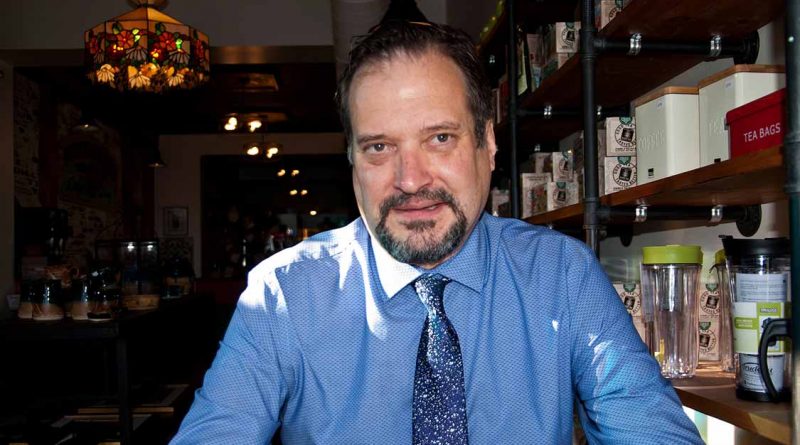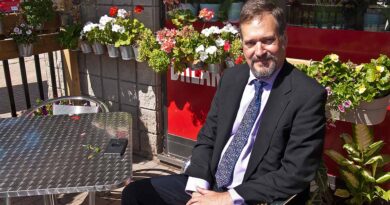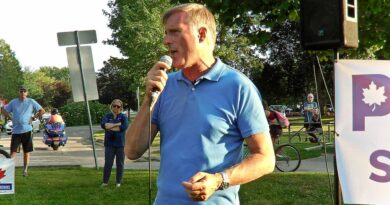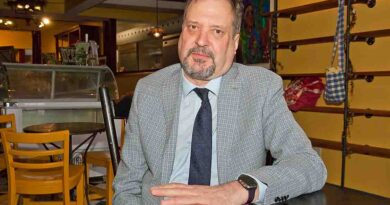The Road To the Federal Election
SUNonline coverage of the October 21, 2019 federal election continues with profiles of candidates running in Simcoe North. Interviews are presented as a series about a candidate’s life journey, background in the riding, political philosophies, and the platforms they and their parties have. Each candidate appears in the order they were interviewed.
Stephen Makk: It’s Not Up To Government
By John Swartz
Stephen Makk of Victoria Harbour is running as a first time candidate for the People’s Party of Canada (PPC).
“My motivation to do this was I truly saw a route for positive change and a loosening of our, what I’d say, stagnant political system and the major party duopoly that we just can’t seem to break out of. When Maxime Bernier formed the People’s Party I saw this is something I could really get behind and for the first time in my life got really interested in politics,”
Makk moved to Victoria Harbour permanently 3 years ago, but he knows the area having spent his childhood summers on Georgian Bay.
“It truly feels like home,” said Makk. “I chose this part of Ontario to live now that my children are finished university, there’s nothing tying me to Toronto. My only regret is I didn’t do it sooner.”
From Toronto, he graduated from the University of Toronto’s engineering science program in 1984 and has worked as an electrical engineer since.
“During University I was really threatening my marks by jamming every single day. I was really into punk rock and my main motivation was making original music and recording. I used to do engineering work in exchange for studio time. One of my labours of love is designing and manufacturing vacuum tube guitar amplifiers. We do that in Victoria Harbour. It’s not a money maker right now, but I do it because I love it.”
Part of his journey involved living in Georgia for 11 years where he was vice president of engineering for Beltronics, manufacturers of radar detectors. He also has done work for Nortel, Bombardier where he worked on the electronics for Vancouver’s Skytrain, and did design work for consumer products Muse and Pavlok. Now he owns Makk Design Inc. in Victoria Harbour.
“We’re manufacturing consumer electronic products in Victoria Harbour in the basement of the old city hall, and exporting to the United States, China and Japan,” said Makk. “Not the space shuttle, but some pretty advanced things. I have designed circuitry over the years that goes into all kinds of products.”
He believes all the work and management experience in large and small corporate settings makes him the ideal candidate for the PPC.
“I’m totally comfortable being in a room with me on one side and 6 or 7 lawyers on the other, I can handle it,” he said. “I understand what legislation is about. I understand our constitution reasonably well. Even a lot of politicians don’t understand the division of power very well and are making all sorts of promises that make very little sense to me.”
The PPC
Many people perceive the party as right of the conservatives. Not so, according to Makk.
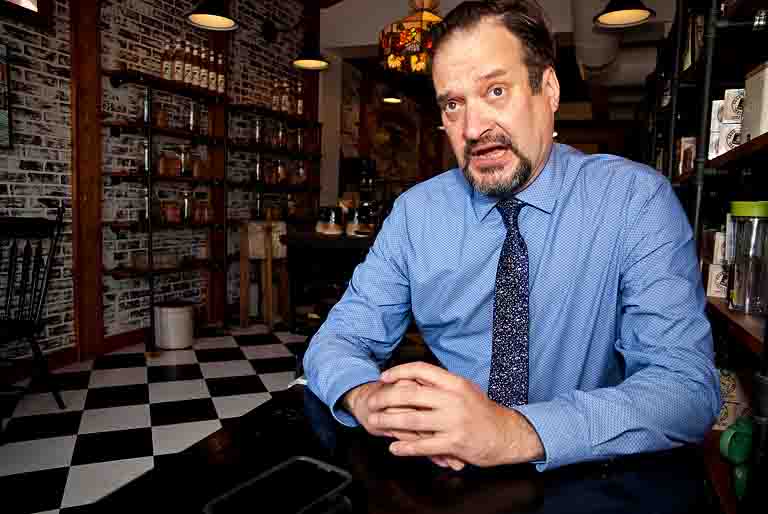
“I’m a libertarian at heart, small L, and I do believe that the libertarian approach has not been given enough discussion in public. I see this as the ultimate big tent and if people stop obsessing about the left/right divide, I think you can finally find a way of breaking the deadlock of these two sort of 30-something percent blocks that are mired in tradition.”
“We have a big tent with low walls. Yes, occasionally some creepy-crawlies come in and we shoo them out. There are left wing libertarians in this world and we haven’t heard from them in a long time and you’d be surprised how many of my supporters are from all over the political spectrum,”
Whoa. Stop there for a second. Left wing libertarians? That’s a different concept.
“Think of hippies. Who was talking about free speech then? Berkley, the first time around, they were speaking truth to power. They wanted to have freedom from a stifling establishment,” said Makk.
“I’m not left leaning libertarian. I’m just saying they exist. Personally my political compass is somewhere around Milton Friedman. I personally am fiscally very concerned about deficits and efficiency of government and minimal government. As far as personal freedom, I’m a complete laissez faire, live and let live, don’t care about people’s lifestyles as long as they don’t harm each other. You’ve got to look at the social and you’ve got to look at the financial.”
“There’s a prejudice that we are some kind of rump of the conservative party. This is not true,” he said. “Yet there are some conservatives that are tired of the stagnation of that party. There are some that are unhappy with its leftward shift and there are some that don’t like the new leader. They are coming to us.”
“Everyone who votes for our party voted for someone else before,” adding they have supporters from the other parties, Conservative, NDP and Green – even some Liberals, “Not that many. I’m trying to work on that.”
“Yeah, the perception is we are in the rightward camp and the conservatives never stop nagging us, “why are you splitting the conservative vote” and we’re not conservative. Some of us are conservative, maybe even most of us are conservative, but not all of us. We’re not splitting the vote. We’re gathering the vote from all over. It’s a long process, but we are really looking at the problems differently.”
The perception most have comes from the PPC leader, Maxime Bernier, who left the conservatives after losing the leadership to Andrew Scheer. Many of his public statements about policy are viewed as right wing. Makk thinks it’s because of how media has chosen to portray Bernier.
“Maxime Bernier, the way he’s portrayed is so at odds with what the man is really like. I only recently met him. To me he was a TV figure before and then when I met him he’s completely different; he’s a gentle, soft spoken, friendly guy, wants to hear what you have to say. He’s the type of guy that every Canadian household would love to have over for dinner. That’s not how he seems on TV. I’m learning a lot of things about politics here.”
Not Necessarily A Party Man
Makk belongs to the PPC, is running under the banner, but he views himself as an independent in a club, and he thinks many others in the party do too.
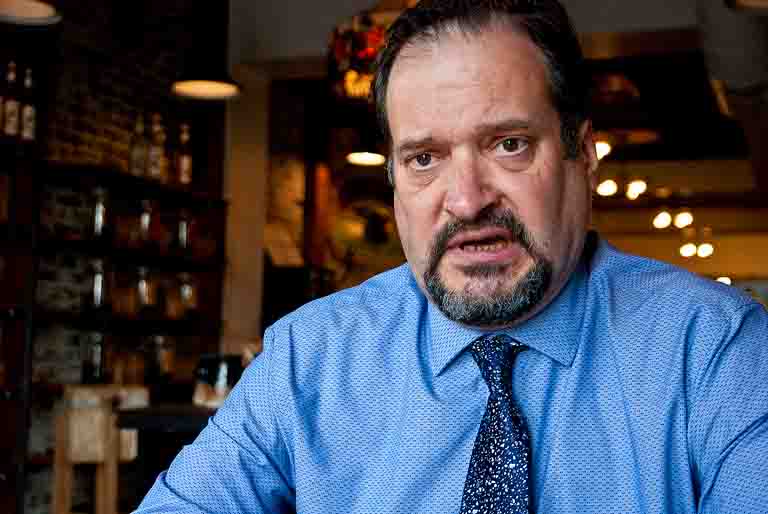
“It’s a well organized party of independents. We’re truly diverse. We have so much diversity of thought that we’re going to inject so many new ideas into a place that’s been lacking those or a decade,” Makk said.
“You want people in politics that are doers and makers. You don’t want bureaucrats and lawyers. There’s too many of them.”
“You vote for me, I’m in a smaller party. You put me in Ottawa and I will be your lifeline. No one will tell me what to do. I respect Max, I know the party platform, I don’t work for him,” Makk said. “I’m going to vote my conscience driven by what I judge as the will of the people around here. This is what makes the job hard because it’s not just listening to the loudest voices. It’s imagining what are the voices of the marginalized, or the voices of the people who are just to plain busy, or the voices of people who are struggling. I need to be an advocate and no, I’m not there to bring money and fire it at the problem. I’m to take this into account, help 337 other people come up with laws that will structure our society to try to make life better for everyone. It sounds corny, it is very basic and this message is being lost.”
Immigration
Two party plans involve immigration and what it means to be Canadian. Bernier’s statements regarding refugees crossing the border in Quebec have drawn criticism. Bernier wants to shut that down and cut back the number of immigrants to Canada.
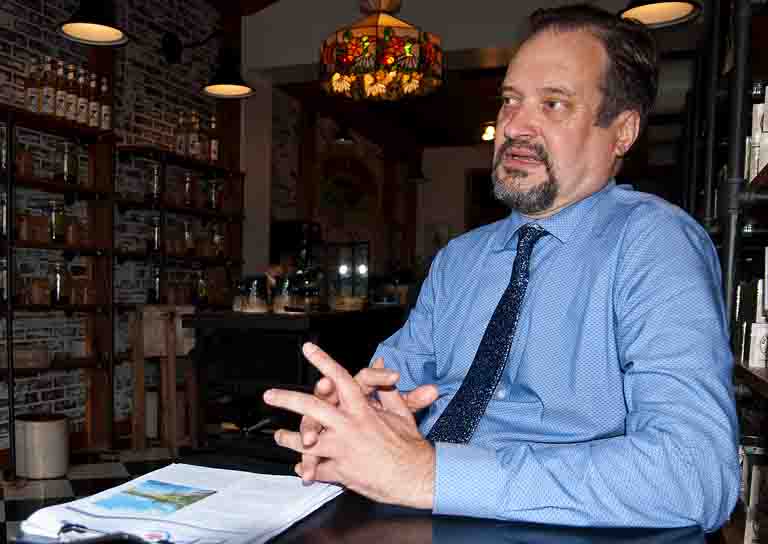
“I am the son of refugees from Eastern Europe escaping communism and they went through absolute hell. They were handpicked to come to Canada because in those days Canada needed people, like we need some people now, and they go through these displaced people refugee camps, and they pick people, healthy, the more education the better, can you speak a language, do you have a trade, is your family together, all these things and you came to this country and you were grateful,” said Makk.
“We have an amazing immigration vetting process. Trump wants to make the American system a points system like Canada and he’s accused of being a racist Nazi, it’s insane. I tried to hire a highly qualified engineer from Europe who was already living in this area. He was already a landed immigrant and the rules are so tough they threw him out of the country because he didn’t bring his wife and kids soon enough and I lost an employee.”
“We’re not afraid to say a person standing with a cell phone and in a nice suitcase, upper New York State, waiting to be escorted in, that is not somebody in imminent threat of death. This is not a Muslim being hunted down by ISIS. This is not a gay person about to be thrown off the rooftop. This is not some wrong tribe and the wrong place in Africa, or people being human trafficked in Asia.”
“We would set a budget; we want to help refugees proportional to what Canada can afford. We’d use our world class foreign service, we’ve got the best. We’d use CSIS. We’d use our army where they’re involved to find out the people are truly suffering, about to get killed, about to starve to death, we will go rescue them, we will pick them using Canadian values. But people just mobbing at our doors who are already safe, there’s something wrong there. That’s what’s polluting the immigration conversation. We need to not close our borders, we need to control our borders, we need to fix weaknesses in our laws. People are using, “I’m a refugee” as an excuse to get around our tough system.”
“I have seen numbers that 40% of these so-called refugees that come in on Roxham Road (Quebec), 40% of them are rejected. It costs $14,000 to process one of these people and they don’t even know what it costs to deport them and we don’t want to be deporting people, so don’t let them in, in the first place.”
Getting rid of official multi-culturalism is perceived to be part and parcel of the immigration stance. Some see it as racist policy, but the party sees it as an economic issue.
“My position and I think Max’s position is, diversity and multi-culturalism is great when it happens, and in a free society is happens naturally and it’s a beautiful thing. I do not think people just give up their culture. They want to keep their culture and let them, but you don’t need the government to fund it. Regional Canadian cultural variation, that stuff’s great, we don’t need to pump money at it to keep it alive, people want to do it,”
“A lot of this feeds this identity politics, especially with newer immigrant groups that end up being in blocs, they put up some kind of leadership, they lobby for government largess, and then corrupt politicians see them as voting blocs; I’ve seen this stuff happen, I mean I lived in Toronto and I don’t like it one bit. I don’t want to see that kind of thinking. I don’t want ethnic ghettos, I don’t want people to have to define themselves as multi-cultural to qualify for funding for their little local festival. They should raise their own money from their own people, do whatever the heck they want and you don’t need the federal government involved.”
“In the old days what people worried about was, “man its disgusting that landlord would not rent that apartment to a black family.” That is just wrong, and government should say that is wrong and should prevent it. Now it’s. you can’t hurt people’s feelings and we’ve lost a lot of what’s important.”
Climate Change
The PPC rejects climate change and will withdraw from the Paris Accord, end the carbon tax, stop subsidies to developers of green technology, things most Canadians think are worthwhile according to polls.
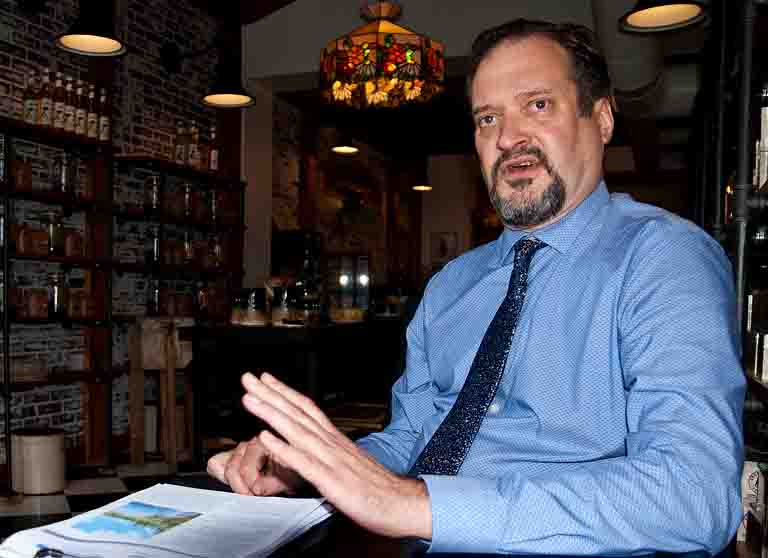
“I’m not a climate change denier. At the same time I’m not a climate change alarmist. The amount of change in climate change so far has not been huge. Let’s say 2 degrees, which is considered a disaster scenario, that’s like moving from Barrie to St. Catherine’s. I think there is still debate from climate scientists. I’m aware of different points of view,” said Makk.
“Describing how things are and what’s happening now, scientists are good at; forecasting what’s going to come next is a different question. I’m not convinced that we’re always on the verge of a big hockey stick where it all goes spinning out of control. I’m very skeptical about that aspect of it. That there may be anthroprocentric carbon affecting climate, yeah, it’s possible. I don’t think the effects are huge and I don’t think we should be running around with climate goggles trying to explain every weather effect and it’s opposite.”
“Is it always climate? We’re forgetting about other kinds of pollution right now. What about land, water? We need to fix water quality all over, especially in Indigenous communities,” he said. “We have pretty good laws, and we should have good laws. We might need more laws, I don’t know. We have to regulate some of this. The climate thing, it’s become kind of like a religion.”
“I’m not going to spend time disputing the scientists. Scientists describe the way the world is. Engineers describe how the world could now be based on that science. The question politically and technically is now what do we do? And what we do had better work and have less unforeseen negative consequences than positive benefits. There’s a cost of doing nothing, I don’t know exactly what it is, but there’s also a cost by taking the hockey stick and sticking it and throwing it into the spokes of our economy. If we do crazy things like implement the Green platform with all the, not only climate, but all the social this and that and basic income and shut down Alberta basically and have a fairy tale unicorn in every pot, yeah, if you have 25% unemployment your emissions are going to drop 25%,”
“We are a high energy civilization, there’s no denying it. Yes we have to be as efficient as we can. We know there are strides, just look at LED lighting, what is happening. I do work with solar converters and there’s lots going on, but it’s not ready yet. It will be. I have so much faith in human ingenuity but we cannot put it on a timetable. That is foolish.”
Specifically on the carbon tax, which aims to make using oil by-products more expensive and condition us to reduce use while providing some funds for development of green solutions, Makk thinks it is the wrong approach.
“Let’s get the solutions in place and workable and tangible and accessible to the citizens before we start punishing them for not switching over. Right now you have some working person in say Midland, they have to commute to Barrie or Toronto to have the best job they can get to cover their needs and now you’re telling them no we don’t want you commuting, your carbon footprint is too big. Well, they can’t buy an electric car; they’d love to have one, they can’t afford it. They can’t take a bus or train that doesn’t exist. These things need to be put in place.”
But who does that if the government doesn’t support it through funding and regulation in some way?
“The citizens and industry. They said seatbelts and safety would never sell. They were wrong. I think very much efficiency now sells, low carbon sells. We need more Elon Musks in this world to do some of these radical disruptive leaps forward. They don’t happen through government action all the time.”
“You’ve got to let the market pick the winners.”
Economic Disruption
Part of getting off oil is the disruption caused to our way of life and job losses. Makk thinks moving swiftly toward eliminating reliance on oil is not needed.
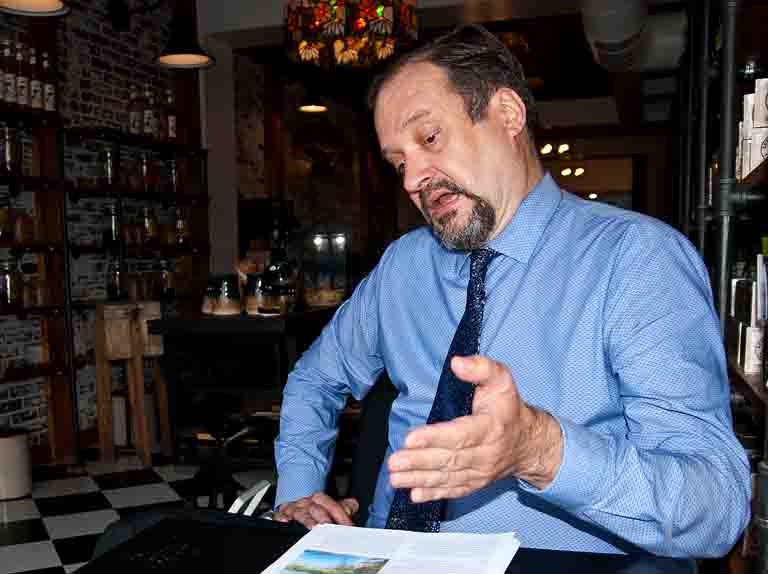
“My position is, something may be happening, we’re not going to be flying off the cliff any time soon. Let’s use the existing high energy civilization with the fuel sources we have right now to fuel economic prosperity and to build the next phase and it will take decades, maybe 100 years, I don’t know. I have some faith in human innovation,’ said Makk.
“We do not need to voluntarily sacrifice our quality of life, especially when China, the U.S., India, Russia are not showing any signs of backing down. They (Chinese) are bragging about a hugely expensive railroad, to just send continuous trains of coal from the coal mines to the coal fired power plants. They’re not changing their ways. They see life as competitive, we’re not going to nuke them into being green,”
”If we were to be the one bunch of boy scouts here with our 1.6 to 2% of emissions and we shut our place down to feel good about ourselves, I don’t know what our lives will be like. It won’t be very good.”
But that is not the only disruption we face as making products and delivering services without human involvement gains momentum. Some are predicting widespread unemployment because of it.
“I think you’re drifting into a lump of labour fallacy that the number of jobs is some kind of fixed number, some function of the number of population. Society is going to be facing some stresses, but sometimes there is no workable answer because if you have a certain number of people you need a certain amount of productivity to create the wealth to provide them with what they need. I’m not into socialist solutions, but regardless of how the wealth gets distributed, either naturally in a free market, or in a controlled economy, you need that wealth in the first place. Unfortunately if the total amount of wealth isn’t there, people’s lifestyles are going to drop and some people aren’t going to make it,” said Makk.
Some won’t have a place in a new economy. Shouldn’t there be a plan to keep people out of the gutter after working all their lives?
“They need to find work. They’re going to have to find a different line of work. When you are talking to an entrepreneur you’re almost talking to a wall. I’ve been in situations where my opportunities ended and I had to do something different. We have to be adaptable, maximize labour mobility, people need to move to where the jobs are. I know the universal basic income concept, that’s an interesting one. People all over the political spectrum are open to it. I like the concept, but it just keeps evolving in my mind to a huge welfare state no matter how you slice and dice it. It is money in exchange for nothing.”
“I’m not that pessimistic. I think people when they face a certain amount of desperation, to be brutally blunt, maybe a little more desperation is needed, they’ll start figuring it out. I don’t think you can afford a safety net like that. We could run numbers and stuff, but I have my doubts. Where are you going to get the money?”
Healthcare
The PPC wants to eliminate the Canada Health Transfer and allow provinces to ‘innovate’ with delivery. To many, innovate is a buzzword for private healthcare. Wait times for care are constantly used by some to depict a failing system in Canada, when in fact, measured against the usual yardstick, Scandanavian examples, we do have longer wait times, but only marginally so.
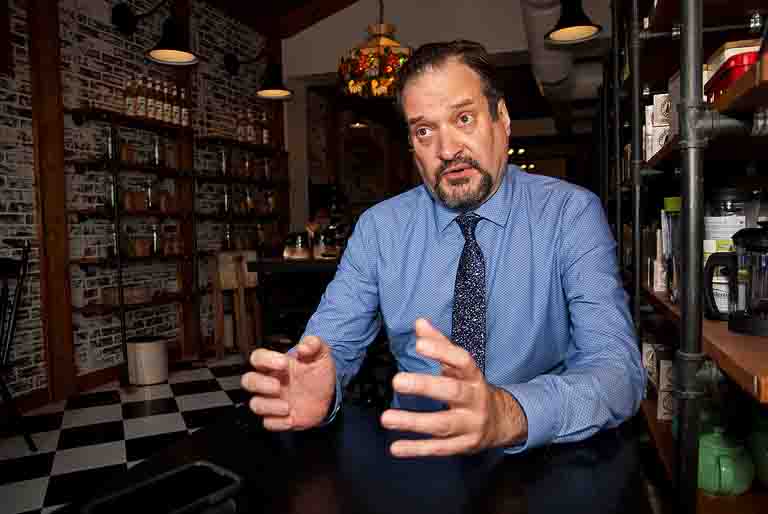
“People think they are (longer). They’re desperate for service. Can you appreciate some people don’t like being told that they can’t have it when they have enough money. What if the individual has the resources, why are we denying them the ability?” said Makk.
“I find it objectionable that I am prohibited by law from entering into a contract with my doctor. It has to be the government’s agent and I have a problem with that. Personally I like the idea of a single payer system because actuarially the larger the pool the more the risk is spread, I’m all good with that. What I don’t agree with is where the heck did that mean that the services have to be delivered by unionized civil servants exclusively.”
The PPC plan appears to be a revenue neutral solution on federal books.
“We would essentially get rid of the Canada Health Act. The $40 billion or so of health transfers, we would basically cancel that same amount of GST and give the equivalent amount of taxation authority right to the provinces. That way we are no longer a middle man.”
Our system of healthcare already has many private corporations involved. There are 8 private facilities in Ontario and almost every aspect beyond doctor’s examination rooms or hospital wards is provided by private industry. Allowing provinces more freedom to solve their healthcare finding issues is seen by many as an attempt to allow private insurance into the mix, which many also view as creating haves and have-nots when it comes to getting treatment.
“We already have differences in systems right now,” said Makk. “You could move to the states and get it right away too. I don’t see how that argument, we trust the provinces are going to manage it well.”
“All I’m saying it’s an option the provinces might decide to ry. We would not prohibit, nor would we push them towards it.”
Allowing each province to decide on a level of care could mean different levels of accessibility. Why should anyone not have the same care for the same ailment regardless where they live in Canada?
“I don’t think we have any provinces that would be so negligent in healthcare that people are going to be dying of common illnesses. I don’t see that as a plausible thing,” said Makk. “The People’s Party tends to support greater freedom for the provinces to do things the way they want. We are for a looser federation, generally speaking, and we’re definitely against redundancy of government.”
The Last Word
When asked if there is anything left unexamined, Makk hits on his libertarian view of individual freedom.
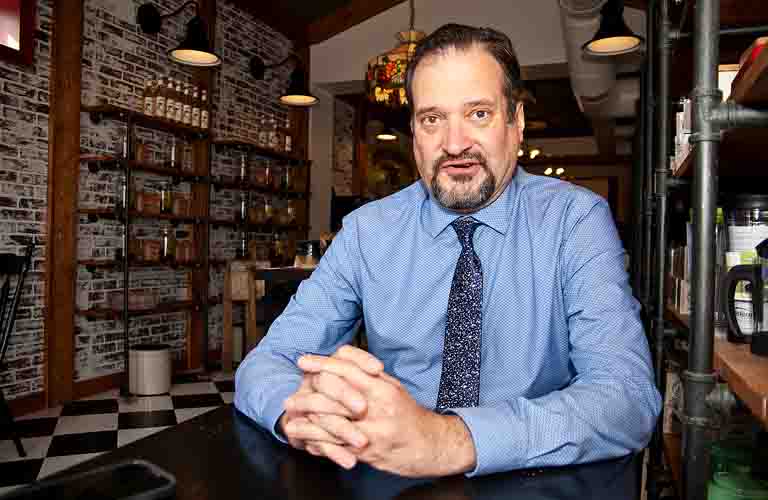
“Freedom of speech. With the People’s Party and classical liberals like us, I hate using that term, it’s a technical term, we are concerned about coercion of all kinds, not just that of government. In a lot of parts of the world people are worried about censorship by government. Here, we don’t have a lot of that, but we have censorship by the mob, censorship by large platform corporations, the Facebooks, the Twitters, that de-person people without explanation, certain classes of voices are being suppressed online in very opaque ways and there’s a culture of fear among companies and individuals that if you are not highly organized – leftist mobs, I’ll be blunt, that are harassing people – people lose their jobs over a political position, people lose their jobs out of a misguided turn of phrase, and then the worst of all, people are self-censoring over political correctness. They are afraid to speak their minds because they are afraid of being piled on or called bad names and culture comes before politics and this shift in culture I believe is extremely dangerous. I see a role of government to defending the individual from the mob, defending the business against the mob.”
“There’s some oddball ones there with a competition of rights, and that’s always fun, but I’m very concerned about the overreaction. If we don’t have freedom of speech and especially freedom of speech in parliament, we’re going down a bad road.”
“I want very minimal laws, for example the whole hate speech thing, I want it be extremely accurately defined as speech that advocates the use of force against identifiable groups or individuals based on prohibited grounds. That’s it, but it has drifted beyond.”
(Photos by Swartz – SUNonline/Orillia)
Other Candidates:

